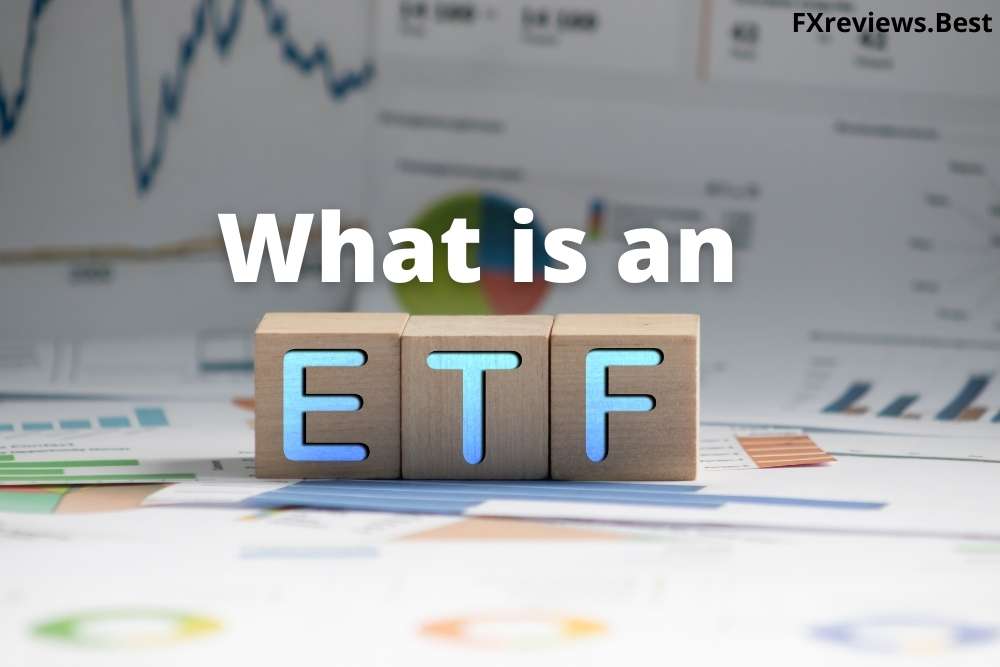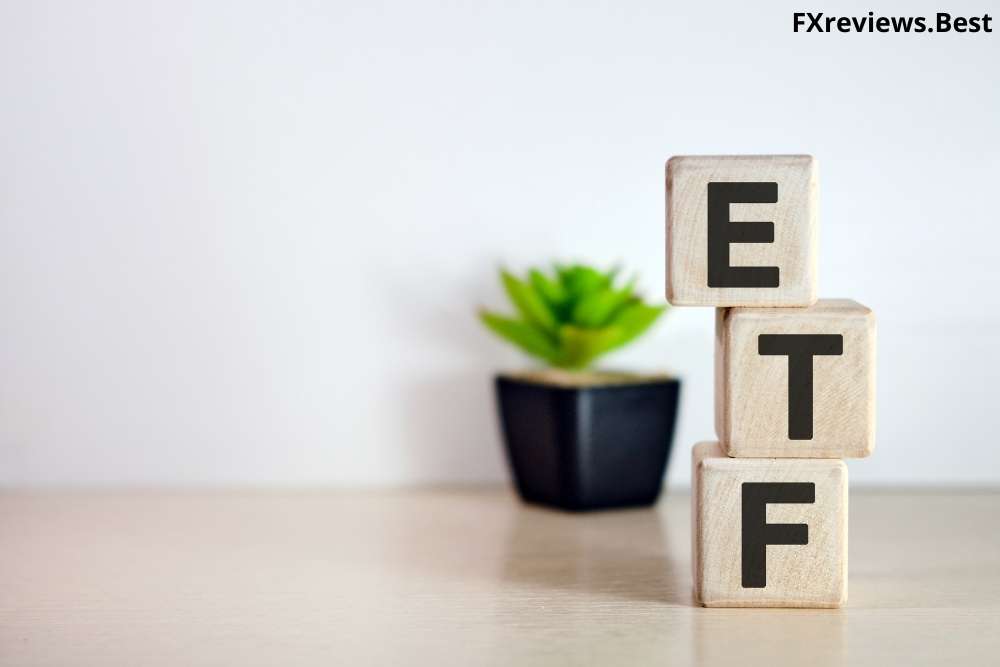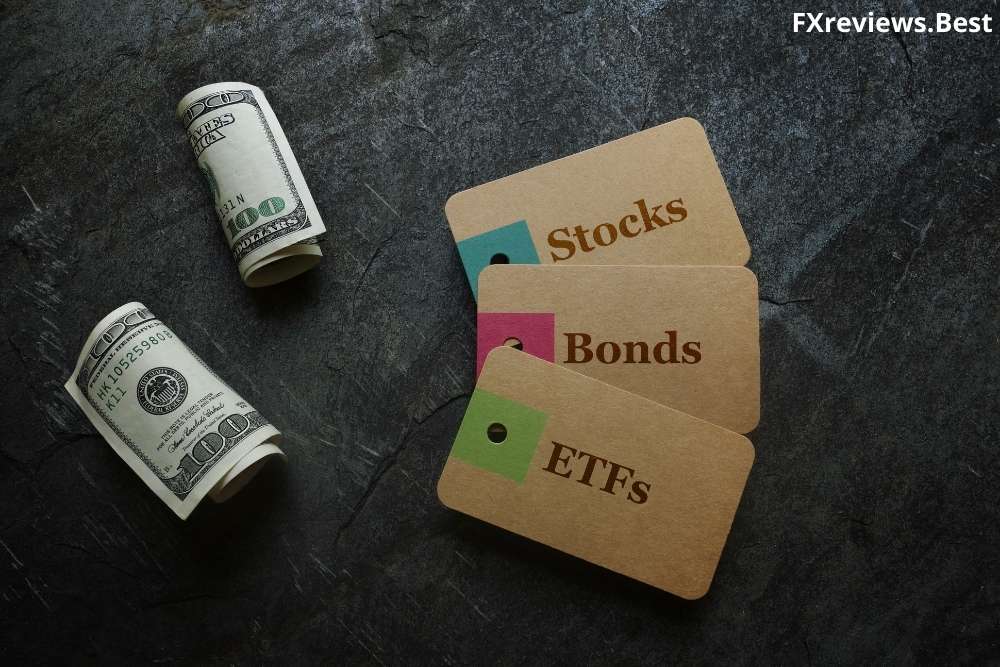If you’re new to the financial world and wondering – What is an Exchange Traded Fund? You have come to the right place.
An ETF is a collection of assets that you can purchase or sell on a stock market through a brokerage company. It stands for Exchange Traded Funds, and it offers you a variety of ways to invest in stocks.
In recent years, individual investors have shown great interest in these Exchange Traded Funds. Exchange-traded funds have several advantages that may help individuals accomplish their investment objectives.
Exchange-traded funds often track a specific sector, commodity, or other assets and can be bought and sold on a stock exchange market like a regular traditional stock.
An ETF tracks anything from a single commodity’s price to a significant and varied group of assets. ETFs can even be used to follow particular investing strategies.
ETFs Meaning:
An ETF means a fund that holds numerous underlying assets rather than just one. Exchange-Traded Funds are a popular alternative for diversification as they offer a variety of assets.
It can also hold various investments, such as stocks, commodities, bonds, or many more. For instance, an Exchange Traded Fund might own hundreds or thousands of stocks from various industries, or it may focus on a single sector.
Some funds are only focused on the US markets, while others focus on various worldwide economies. It is also considered marketable security, which means it has a share price that allows it to be traded on exchanges at any time of the day.
Pros and Cons of ETFs:
Exchange-Traded Funds offer reduced average costs as buying all of the stocks in an ETF portfolio individually would be prohibitively expensive for Investors.
As investors only make a few trades, they only need to complete one transaction to purchase and sell, which results in low broker commissions.
However, some brokers, such as ABInvesting, don’t charge any commission on some low-cost ETFs, significantly lowering investor costs.
Exchange-traded fund expense ratios are the cost of operating and managing the fund. Below are some advantages and drawbacks of an Exchange Traded Fund to better understand you.
Pros of Exchange Traded Fund:
- You can get access to a wide range of stocks from a variety of sectors
- Low Expense ratios are low
- Low broker commissions
- Diversification helps to control risk.
- Some ETFs focus on specific sectors
Cons of Exchange Traded Funds:
- Fees for actively managed ETFs are higher
- Diversification is limited with single-industry ETFs
- Lack of liquidity
How Does an ETF Work?
An exchange-traded fund often represents a predetermined portion of the financial market to follow the price performance of that segment.
ETF holds the assets which comprise that particular market segment. In simple words, it means that the fund will purchase these assets to replicate the segment.
There are two types of exchange-traded funds: Actively-managed ETF and Passively-managed ETF. The latter track a predetermined market section, such as an index. They are the assets that have been hand-picked by an investment manager.
What is ETF Investing?
After mutual funds, Exchange Traded Funds are one of the most demanding and attractive investment options. As discussed above, ETFs hold numerous underlying securities such as stocks, commodities, and bonds, among other asset classes.
ETF units can be purchased and sold on a stock exchange market. They’re mainly passive investments that follow and replicate a market index.
As exchange-traded funds are connected to diverse indexes, they are less sensitive to high volatility. As a result, they are extremely popular among investors.
An ETF also allows investors to profit from intraday swings because they may be purchased or sold at a price close to the scheme’s NAV during market hours.
They are an excellent long-term buy-and-hold investment type. It has a low expense ratio than actively managed mutual funds, which may generate greater long-term returns.
These funds offer lower administrative expenses, often as little as 0.2% per year than over 1% for actively managed mutual funds.
If an investor wants a portfolio that replicates the performance of a market index, investing in exchange-traded funds can be a good decision for them.
7 Best Small-Cap ETFs to Buy Now 2022. Read Now
ETFs vs. Mutual Funds: Comparison
Exchange-Traded Funds and Mutual funds are quite similar. Both types of funds offer a variety of assets and are a popular approach for investors to diversify their portfolios.
While mutual funds and exchange-traded funds may seem similar in many ways, they also have some significant differences.
Exchange-traded funds, unlike mutual funds, can be exchanged intraday like stocks. However, mutual funds can only be acquired at the end of each trading day at a determined net asset value price.
Here’s the difference between Exchange-traded funds and Mutual Funds:
Trading:
In Mutual Funds, Investors can directly purchase and sell mutual funds at the current day’s closing price, commonly known as the NAV (Net Asset Value).
Conversely, ETFs are traded at the current market price throughout the day, much like the stock exchange, and they may cost slightly more or less than the mutual fund navs.
Fees and Commissions:
Mutual funds investors may be subject to a Transaction fee, such as sales or redemption fees. On the other hand, ETF investors may have to pay brokerage commissions on trading.
Taxes:
Because most ETFs are index funds, they trade less often than actively managed funds and provide less taxable capital gains distributions for investors.
Minimum Investment:
In ETFs, the minimum investment is relatively low compared to mutual funds.
Types of ETFs available to Investors?
Investors have the choice to choose from a variety of ETFs that can be used to gain profits, speculate on price gains, and hedge or partially offset risk in their portfolios.
Here’s a list of some of the most popular types of exchange-traded funds:
Bond exchange-traded funds:
Bond ETFs offer investors a good source of income. The performance of the underlying bonds tells the distribution of their earnings. Government bond exchange-traded funds, business bonds, and state and local bonds are examples of Bond exchange-traded funds.
Stock exchange-traded funds:
You might be wondering – What is an ETF Stock? Here’s everything an Investor should know about it. ETFs that follow a specific industry or Sector’s stock are referred to as exchange-traded funds Stock.
Investing in Stock exchange-traded funds is to give diverse exposure to a particular industry, which comprises both high-performing companies and newcomers with growth potential. The best thing is they offer cheaper costs and do not require actual stock ownership.
Industry / Sector exchange-traded funds:
ETFs that track a single industry or Sector are industry exchange-traded funds. These Sector ETFs aim to provide exposure to an industry’s upside potential by following the performance of firms in that Sector.
Commodity exchange-traded funds:
These are exchange-traded funds that invest in crude oil or gold commodities. Commodity ETFs provide a number of advantages by diversifying a portfolio, making it easier to hedge against market downturns.
Currency exchange-traded funds:
A currency exchange-traded fund is an investment type that monitors the performance of currency pairings, including local and foreign currencies.
How to Invest in ETFs?
Exchange-traded funds investment has become very simple because of the availability of several advanced platforms. To begin investing in exchange-traded funds, follow these easy steps listed below.
Open a brokerage account with a reliable broker:
Before starting to trade exchange-traded funds, you’ll first need to open a brokerage account with a good broker such as ABInvesting. Today, many brokers provide commission-free stock and ETF trading, so that’s the best news before getting started.
Now, examine the features and platforms of each broker. If you’re a novice investor, it’s a brilliant idea to work with a broker that offers a variety of research and educational tools.
Select your initial ETFs:
Passively managed index funds are often the best option for novices. This is because index funds are less costlier than actively managed funds.
Choose a trading strategy:
If you’re new to exchange-traded funds, dollar-cost averaging or spreading out your investing fees over a period of time is a decent option. This investment strategy will smooth out returns over time and guarantee a disciplined investment approach.
Place an Order:
The process for placing an order for exchange-traded funds is relatively similar to that of stocks. After opening an account and choosing a strategy, now put a trade.
It’s time to Relax:
Beginner Investors review their portfolios far too frequently and react to large and small market movements.
Over-trading is why the ordinary fund investor underperforms the market over time. So, once you’ve invested in ETFs, the best suggestion is to relax and let them grow over time.
Conclusion:
Exchange-traded funds have become increasingly popular among investors because of their ease of investment, cost-effectiveness, and diversification.
While most individual investors are unfamiliar with ETFs, they have been part of most professional traders’ portfolios for years. In addition, exchange-traded funds are a staple of pension funds and insurance companies’ portfolios.
With ETFs now seeing tremendous popularity, they will probably continue to be a popular choice for investors wanting to diversify their portfolios.
However, with new technology transforming the financial services business, the long-term future of exchange-traded funds is uncertain.
FAQ:
What is an exchange-traded fund?
An exchange-traded fund is a collection of assets that trade exactly like stocks on a stock market, unlike mutual funds, which only trade once a day after the market closes and can be sold or bought anytime.
Are ETFs suitable for novice investors?
Exchange-traded funds are perfect for new investors because of their numerous advantages, such as low-cost ratios, high liquidity, a wide variety of investment options, diversification, and a low investment threshold. As a result, exchange-traded funds are a perfect choice for new investors.
How long can I hold exchange-traded funds?
If you hold ETF shares for less than a year, the profit is considered a short-term capital gain. On the other hand, Long-term capital gain occurs when you have exchange-traded fund stocks for longer than a year.
Which is a good mutual fund or an exchange-traded fund?
ETFs are comparatively more tax-efficient and liquid than mutual funds. This can benefit investors who want to invest for a long time.
Is it possible to sell an ETF at any time?
Yes, Exchange-traded funds can be sold anytime during trading hours (9:30 a.m. to 4:00 p.m. Eastern Time), allowing investors to profit from intraday price changes.



